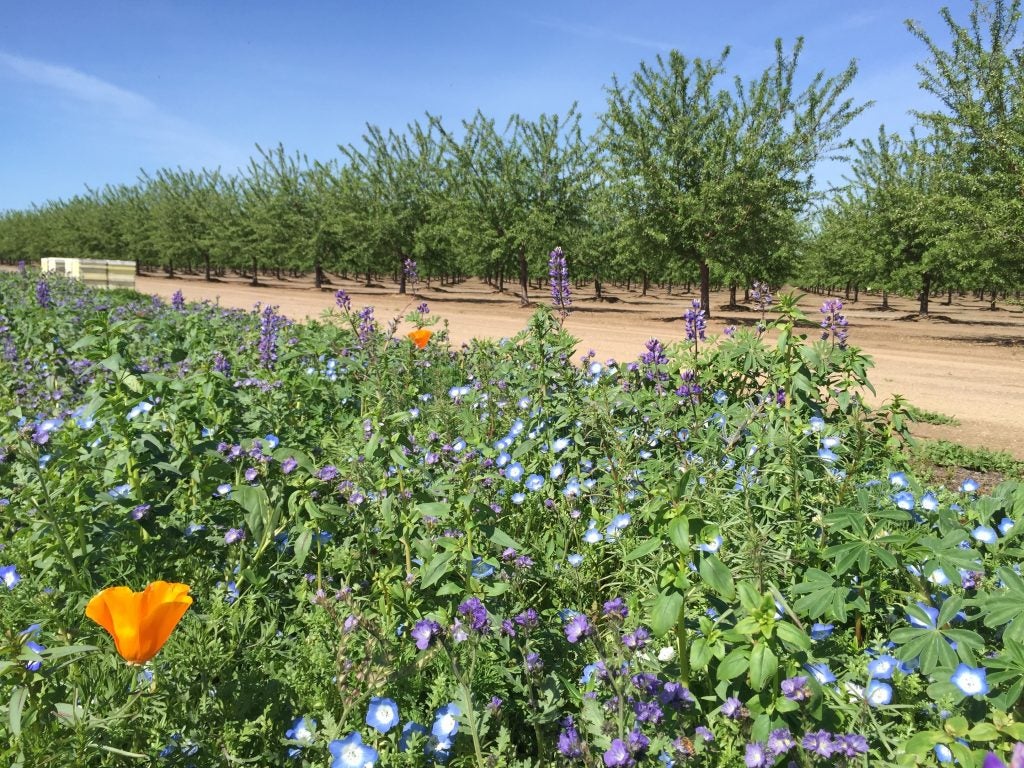California produces the majority of the world’s almonds, with nearly 1.53 million acres dedicated to almond orchards. However, less than 20,000 of those acres are bee-friendly verified with pollinator habitat and reduced pesticide use.
As bees and other important pollinator populations decline sharply, it is imperative to change the trajectory of pollinator and biodiversity loss in key agricultural landscapes — and one food company is launching an effort to do just that.
A commitment to bee-friendly sourcing
KIND Healthy Snacks recently announced its commitment to become the first global snack company to exclusively source its almonds from bee-friendly orchards by 2025, taking an important step to help address the pollinator emergency.
KIND worked with its almond growers to eliminate the use of certain pesticides, and it expects each of its almond suppliers to reserve 3-5% of their farmland for habitat that supports bees, butterflies and other pollinators.

Wildflower habitat alongside almond groves can bring multiple benefits to both farmers and pollinators. (Photo credit: University of California, Davis).
Research from nonprofits and grower groups, like the Almond Board of California, show the benefits of adopting pollinator-friendly habitat on almond orchards, and KIND is one of the first companies to put these lessons learned into long-term commitments within their supply chain.
KIND currently sources roughly 1-2% of the world’s almonds, so this move will ultimately affect thousands of acres of almond orchards and improve agricultural resilience in key ecological areas. Increased habitat and lowered pesticide use will help bolster biodiversity, which in turn boosts soil health, enhances water management, builds crop viability and improves pollination.
KIND’s commitment also reflects that companies are listening to consumer demand. With increased consumer interest in where food comes from and how it’s grown, companies are realizing the importance of evolving their supply chain and sourcing practices. These supply chain signals can spur more rapid adoption of conservation practices that increase resilience for growers and agricultural landscapes alike. KIND is working to build a healthier and more resilient food supply chain. Here's how. Share on X
A collaborative, multi-benefit approach
KIND will continue to work closely with growers to learn from and lean on currently available certification and verification programs, as well as to consider new systems that could work for farmers without jeopardizing their businesses and livelihoods. Because of this careful collaboration, KIND’s commitment will benefit farmers in the long run.
As EDF expands our resilience work in the tree nut industry, we are excited to collaborate with KIND and other industry leaders to help develop orchard management solutions that enhance farm businesses and regional biodiversity.
By encouraging such a large network of almond growers to adopt multi-benefit conservation practices, KIND’s commitment creates a model for other industry leaders to follow to support a healthier and more resilient food supply chain.









